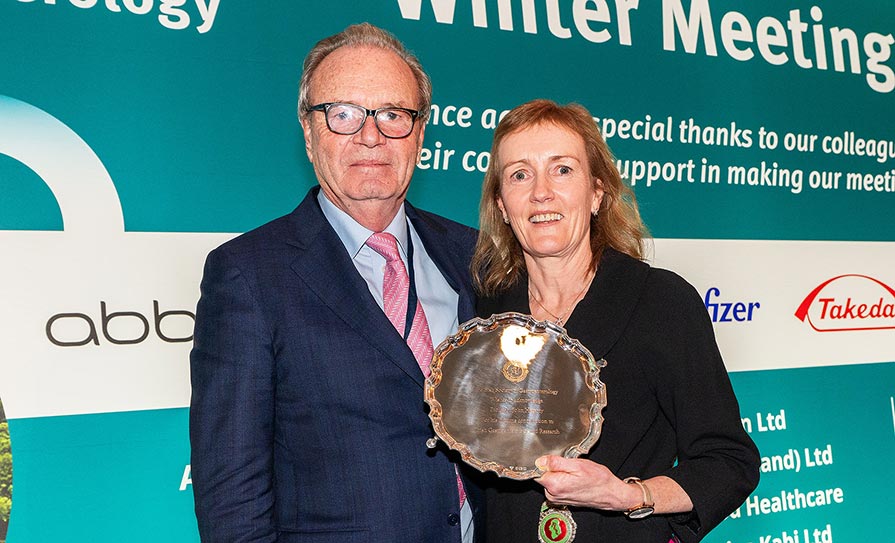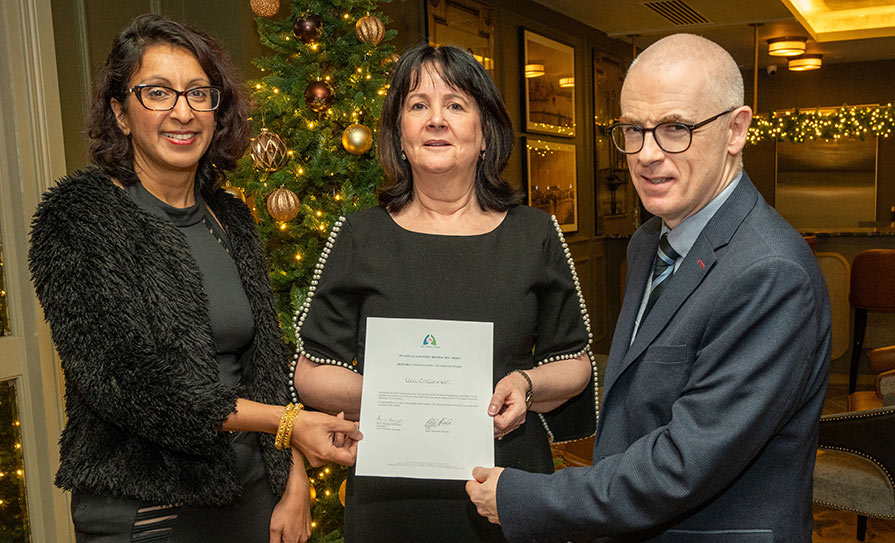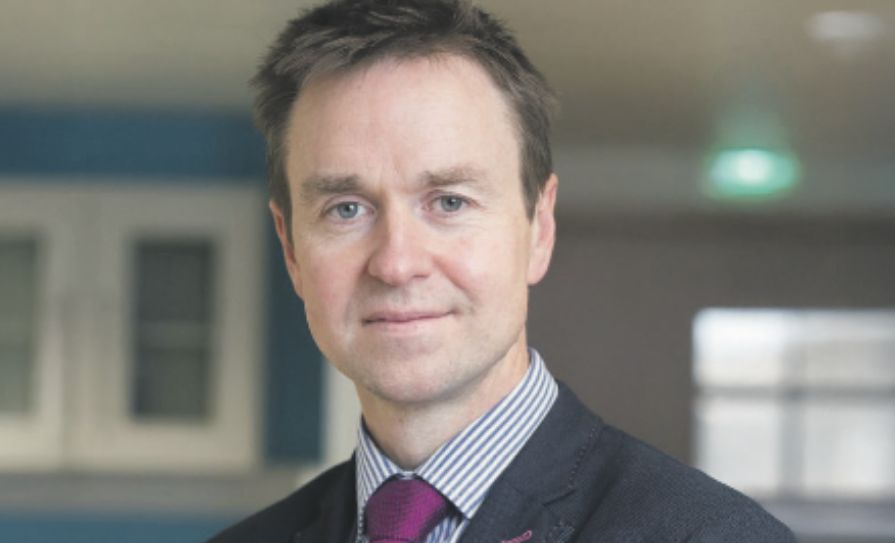The slow progress of digital transformation in the health service is a “huge frustration” for clinicians, Consultant Medical Oncologist Dr Grainne O’Kane has told the Medical Independent (MI).
The need for an integrated national system – involving a national electronic health record and individual health identifier – was the dominant theme at the 20th National Health Summit in Croke Park, Dublin, on 7 February.
Dr O’Kane, Director of the Cancer Clinical Trials Unit at Trinity St James’s Cancer Institute, spoke on cancer care during the event’s morning session.
“I think the use of a unique [patient] identifier and an electronic medical record in this country would transform care and improve efficiencies,” she told MI after her address.
She said advances in digital technology would be particularly important to support delivery of patient care across settings.
“…. Where it helps me is if a patient was to be seen somewhere else in the country, or if the patient was admitted to some other hospital, then in real-time I could see what is happening. This means I can influence the outcome of this patient with their inpatient care.”
Dr O’Kane added that improved digital infrastructure would lead to efficiencies in multidisciplinary team meetings.
“Because everyone has access to reports, letters, scans…in a much faster period of time, rather than nurses and other staff having to go around and collect it all manually from different places.”
Dr O’Kane said digital transformation would also allow for greater insights into patient outcomes nationally.
She said clinicians in oncology and other specialties shared her “frustration” at the lack of a national integrated digital infrastructure.
“The frustrating thing is that we are, for example, sometimes still using faxes in Ireland,” she told MI.
“I want [digitalisation] because it would enable me to deliver better care for patients,” she added.
Dismay at the slow progress of digital transformation was raised across the entire day of the Summit.
Delivering the event’s opening address, HSE Chief Operations Officer Mr Damien McCallion admitted that the Irish health system needed to take a “giant leap forward” in this area.
“The public expects it. You can book a flight [online] for the last 15 years or so. So we have a huge job to do. And this is not just about technology; it is about changing the way we work. If you want to book an appointment in a hospital with a consultant, as a GP you’ve got to be able to see all the available slots and make sure there is a common way of working and a common way of dealing with that.”
He said the HSE intends “to roll-out a patient app through to the end of this year and other developments are definitely needed”.
However, he added that digitalisation also provides a “huge opportunity” for the health service.
Dr Ronan Glynn, Partner and Health Sector Lead at EY Ireland and former Deputy Chief Medical Officer at the Department of Health, told the conference there are reasons “to be optimistic” regarding future digital care in Ireland.
“Yes, we are coming from a low base, but that does give us an opportunity to learn from the mistakes of other countries.”
“But at the core of that must be the clinician voice. We need to ensure that we are designing these technologies and systems of data and insight around what clinicians and service users need, as opposed to what the technology can do easily. Otherwise we end up with technology that does not make sense.”
Speaking in the afternoon, Prof Neil O’Hare, Group Chief Information Officer (CIO) at Children’s Health Ireland and Professor of Health Informatics at University College Dublin, said Ireland was “miles behind” in regard to digital health.
While there are “really good examples of bits that work”, improvements have not been uniform.
He argued there needed to be greater political leadership in the area.
“It’s like we are almost afraid to fail… we can do it, it won’t happen overnight. It needs direction, it needs impetus, it needs political support… we need someone at a political level to say ‘we’re going to do this as a nation. This is important for us’. The same way as we did it with the roads. And everything else will follow that.”
Prof O’Hare outlined that the New Children’s Hospital (NCH) will be a “truly digital hospital” within the hospital itself and its satellite units.
However, he added that “we missed a trick… we were not allowed to go out to the market to procure an electronic health record for all the paediatric units around the country. We will have a really good system, but it will be within [the NCH].”
Mr Robert Forde, eHealth Director and CIO at Dublin Midlands Hospital Group, also addressed the afternoon session. Mr Forde praised good examples of digital health, such as in St James’s Hospital and Tallaght University Hospital in Dublin.
However, he said the overall system was fragmented. “What you also find is that there is huge divergence in capabilities between voluntary and the statutory hospitals,” he said.
Mr Forde pointed to “huge opportunities” for digital health in Ireland, but queried whether current Government investment was receiving an adequate return on expenditure.













Leave a Reply
You must be logged in to post a comment.